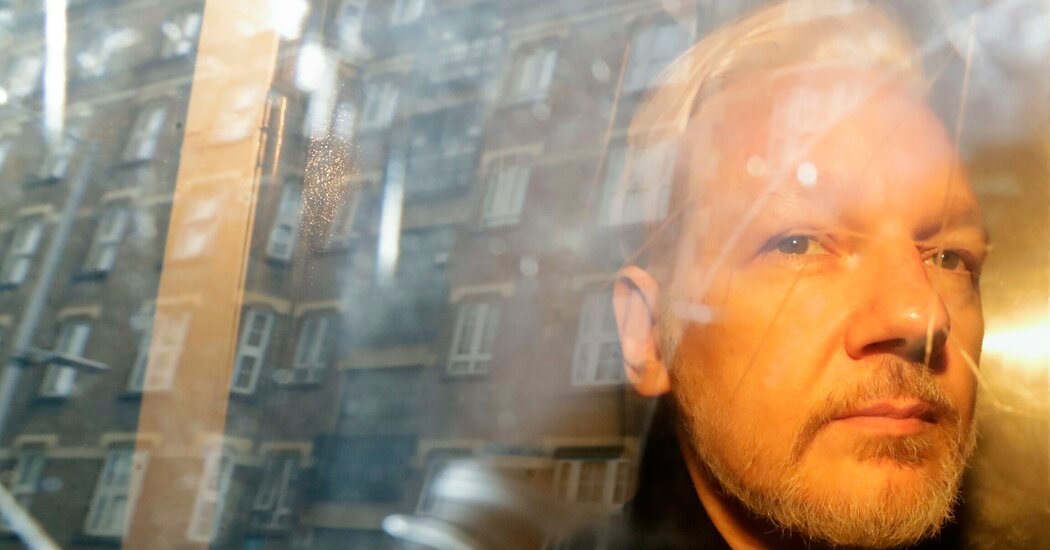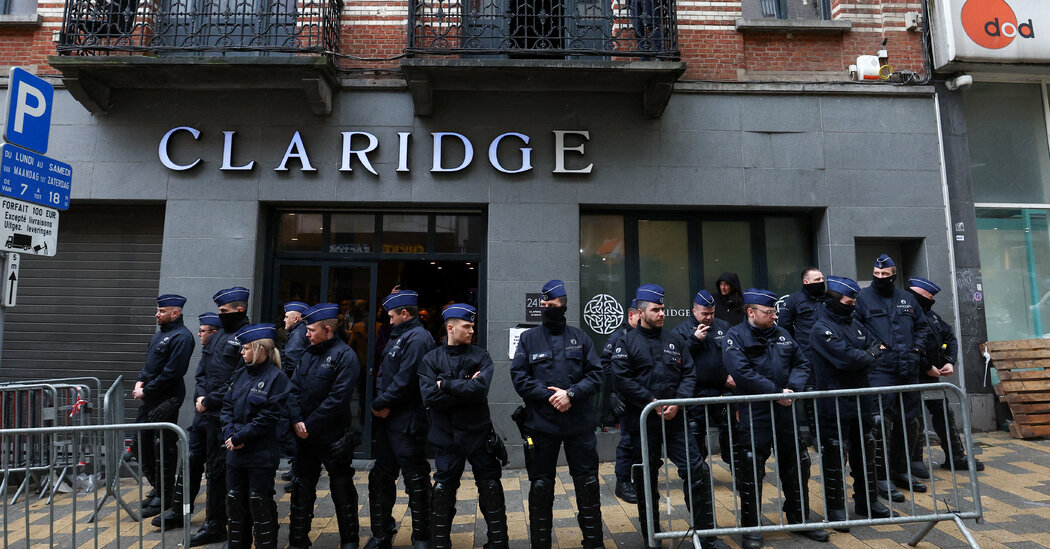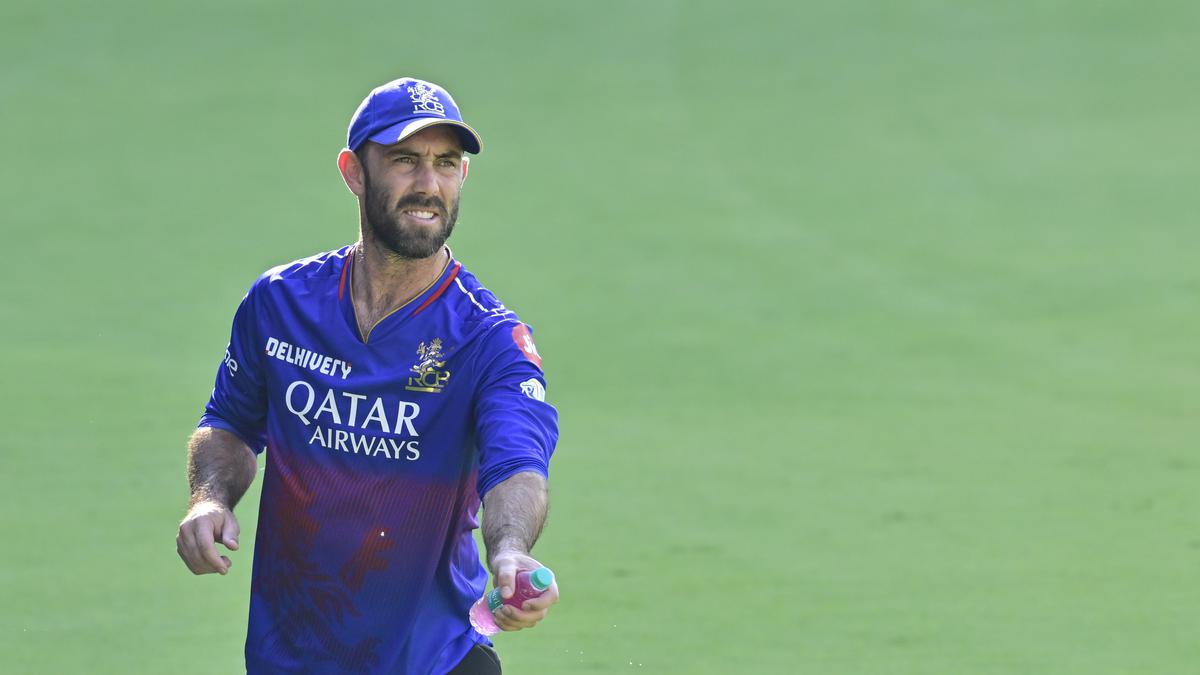[ad_1]

Indian and Sri Lankan pilgrims leave Katchatheevu in March 2023 after attending the St. Anthony’s Church festival.
| Photo Credit: The Hindu
The story so far: On March 31, Prime Minister Narendra Modi posted on social media platform ‘X’ that he blamed the Congress for “callously” giving away Katchatheevu island to Sri Lanka. He cited a media report on documents received in response to a Right to Information Act application from K. Annamalai, the Bharatiya Janata Party’s (BJP) Tamil Nadu president. Soon after, External Affairs Minister S. Jaishankar held a media conference, in which he sought to elaborate on Mr. Modi’s allegation. Calling for a “solution”, he said the bilateral agreements signed by India and Sri Lanka in 1974 and 1976, when the Congress and the Dravida Munnetra Kazhagam (DMK) were in power respectively at the Centre and in Tamil Nadu, displayed indifference about Katchatheevu island, and compromised Indian fishermen’s rights in the Palk Strait separating India and Sri Lanka.
Where is Katchatheevu?
Katchatheevu is an uninhabited island spanning some 285 acres in the Palk Strait that separates Tamil Nadu and northern Sri Lanka. More precisely, it is located 14.5 km south of Delft Island and about 16 km to the northeast of Rameswaram. It is barren, has no drinking water or infrastructure, except a sole Catholic structure dedicated to St. Anthony.
What was the dispute?
The dispute was over who owns Katchatheevu. Negotiations began in 1921, between the British colonial governments of Madras and Ceylon, with both sides claiming territorial ownership. The matter was settled some five decades later, after the Governments of India and Sri Lanka, under Prime Ministers Indira Gandhi and Sirimavo Bandaranaike, signed two bilateral agreements in 1974 and 1976. The governments agreed that Katchatheevu falls within Sri Lanka’s territory, and on a maritime boundary in the Gulf of Mannar and Bay of Bengal to define the two countries’ exclusive economic zones. With the exclusive economic zones, India and Sri Lanka agreed to exercise sovereign rights over the living and non-living resources of their respective zone. The understanding was that fishing vessels and fishermen of India and Sri Lanka shall not fish in each other’s waters, territorial sea and the exclusive zone.
Will ‘retrieval’ of Katchatheevu solve the problems of Tamil fishermen? | In Focus podcast
However, despite the historic dispute over its territorial definition, fishermen from Tamil Nadu visit Katchatheevu every March, along with their Tamil-speaking counterparts of northern Sri Lanka, for the annual St. Anthony’s festival. The Indian fishermen do not require a passport to visit the island in Sri Lankan territorial waters for this purpose, because the 1974 agreement expressly permitted them to access the island for rest, drying of nets, and the festival, while prohibiting any fishing activity.
What did India get?
Commentary and analysis from the time, including in The Hindu, shows New Delhi was seen as gaining some diplomatic mileage with its neighbour, which was tilting towards China then. A few years after the liberation of Bangladesh, and alongside the difficult question of citizenship for Indian-origin Tamils who were rendered stateless in Sri Lanka, New Delhi deemed strong and close ties with Sri Lanka important. Further, New Delhi got sovereign rights over Wadge Bank, located near Kanniyakumari, and its rich marine resources. Earlier this year, the Union Ministry of Petroleum and Natural Gas, Directorate of Hydro-Carbon put out Notice Inviting Offers (NIO) for the exploration and development of oil and gas blocks in India, under the Hydrocarbon Exploration and Licensing Policy (HELP). The move drew flak from residents of Kanniyakumari and environmentalists who raised concerns over such activity impacting the marine ecosystem around Wadge Bank.
Watch | The politics of Katchatheevu
Are fishermen arrests related to the island?
No, they are not. Indian fishermen from Tamil Nadu have been facing arrests by the Sri Lankan Navy for many years now, for fishing illegally in Sri Lanka’s territorial waters. Invariably, the arrests are made well past Katchatheevu, very close to Sri Lanka’s northern shores. Northern Sri Lankan fishermen, also Tamil speaking, have been agitating since the end of the island nation’s civil war in 2009, to assert their fishing rights. The Indian fishing boats are a major impediment to their post-war recovery.
In particular, they resist the use of the bottom-trawling fishing method used by their Indian counterparts, where trawl nets go down to the seabed, and scoop out all marine organisms, including small fishes and eggs. Eager to boost its marine exports, India began encouraging mechanised trawler fishing decades ago, when the Norwegian government invested millions of dollars into modernising India’s fishing fleet from the 1950s and up to the early 1970s. Owing to the practice, marine resources along Tamil Nadu’s coast have depleted, pushing Indian fishermen towards the Sri Lankan coast, rich in marine biodiversity, especially shrimps. Northern Sri Lankan fishermen are opposing the use of the fishing method that Indian fishermen stubbornly hold on to, despite the two governments in 2016 agreeing to expedite the “transition towards ending the practice of bottom trawling at the earliest”. The fishermen’s conflict is a contest between Tamil-speaking fishermen in India and Sri Lanka, with those from Tamil Nadu habitually fishing illegally in Sri Lankan waters, using bottom trawlers that are banned in Sri Lanka. Although many politicians in India often conflate the two issues, Katchatheevu is not the site of this struggle, and its “retrieval” cannot be a solution to it.
What has been the response?
Opposition parties led by the Congress have slammed the remarks, citing the government’s own position in 2015 that the previous agreements did not “involve either acquiring or ceding of territory belonging to India”. Tamil Nadu Chief Minister M.K. Stalin asked if PM Modi raised the issue of the retrieval of the Katchatheevu island with Sri Lanka once during his 10-year rule. Senior diplomats, who have led Indian missions in Sri Lanka, said questioning past agreements could damage India’s credibility and impair relations with our neighbour. Former National Security Adviser Shiv Shankar Menon told The Hindu that reopening the 50-year-old-agreement could prove to be a “self-goal.”
Editorial | No man’s land: Playing politics over Katchatheevu
In what some see as a muted response from the Sri Lankan government, the country’s Foreign Minister Ali Sabry has said there is no need to resume talks on a matter resolved 50 years ago. Sri Lanka’s Fisheries Minister Douglas Devananda has accused India of acting in self-interest “to ensure Sri Lankan fishermen do not have access” around Katchatheevu. Fishermen on both sides have voiced concern over the remarks, while reminding the two governments that much needs to be done to resolve the actual fisheries conflict that is threatening both the region’s marine ecosystem and livelihoods of fisher folk who depend on it.
[ad_2]
Source link





